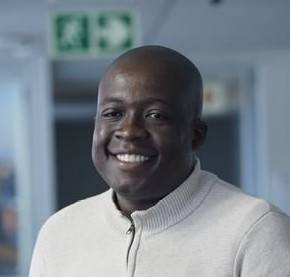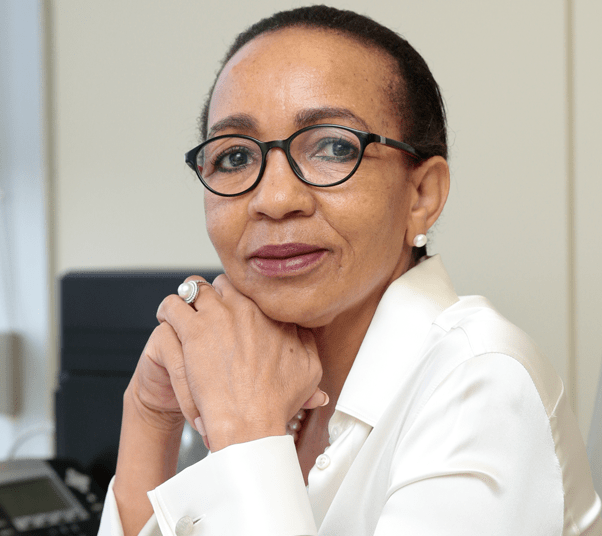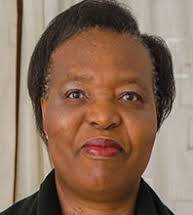How finite resources are being managed is of major concern for the country’s civic sector and its citizens
Botswana, once a beacon of democratic governance and economic stability, went to the polls yesterday against a backdrop of concerns about corruption, electoral integrity, unprecedented holes in the budget, and a projected decline in diamond rents.
A webinar organised by Good Governance Africa, Botswana Watch and Mail & Guardian was held on Monday to discuss Botswana’s current trajectory, focusing on governance, resource management, and the implications for democracy and economic diversification.
 Khaya Koko
Khaya Koko
Resources, and how they are handled, was a theme that emerged frequently in the discussion. This included the fact that more diversification is required, as the government cannot rely on the finite resource of diamonds indefinitely; there appears to be some belt-tightening on the part of the government, leading to concerns that financial resources are running out; and there needs to be more transparency about the management of these resources.
Khaya Koko, head of investigations at Mail & Guardian, moderated proceedings, opening with some background to the elections. President Mokgweetsi Masisi of the ruling Botswana Democratic Party (BDP) is seeking a second and final term in office. He contested former president Ian Khama, who recently returned to the country after being in a self-imposed exile in South Africa after members of his family were detained and intimidated by the Directorate of Intelligence Services (DIS) a few years ago. The two fell out over numerous policy issues, including Masisi’s about-turn on Khama’s conservation policy of a moratorium on trophy hunting.
‘If citizens do not hold their government to account, they cannot expect good governance’.
Dr Onalenna Selolwane, a leading expert in democracy and governance, said that there have been major splits in the BDP because of the way it was run, and this goes back a long way. Under Ian Khama, a former military general, the army became part of the BDP, and the DIS became widely perceived as a “rogue unit” that spies on its citizens. “But if citizens do not hold their government to account, they cannot expect good governance,” she said.
 Sheila Khama
Sheila Khama
Sheila Khama, resources and mining expert in Botswana, said that the political fractures can have an impact on investment and business, particularly in the mining industry. The relationship between De Beers and the BDP is “somewhat beyond politics”, as together they have a joint venture, the mining company Debswana. Formed in 1969, it is the largest diamond mining company in the world, with four major mines, and the country’s economy is largely dependent upon it.
But if this successful joint venture becomes seen merely as political capital, its gains may be used solely for the purposes of the political elite, in the same way land was used in Zimbabwe, said Khama. She gave the example of the Canadian company Premium Nickel Resources, which wants to mine in Botswana but is struggling to get mining rights. It eventually had to take the government to court, which ruled in its favour. Ms Khama said that if the government starts to disregard its own laws, “then this is what worries me”.
‘When a political and business elite start to pursue a ZANU-PF playbook, it is extremely concerning.’
Dr Ross Harvey, director at GGA specialising in natural resources and sustainable development in Africa, said that Botswana has “lost some of its shine” over the last 10 to 15 years; for instance, its World Bank ratings on numerous governance criteria have dropped, particularly regarding how much voice its people have. “When a political and business elite start to pursue a ZANU-PF playbook, it is extremely concerning.”
 Dr Ross Harvey
Dr Ross Harvey
Harvey said that Botswana is struggling to diversify its economy away from diamonds, and although it has made some progress in beneficiation; “a country cannot rely forever on a finite resource”. The country needs industries that provide many jobs, such as tourism, and it would help if it started trading more with its neighbours.
Selolwane said that civil society has traditionally played a big role in Botswana’s history; the trade unions, for instance, have historically flexed their muscles and made demands. Women, the youth and some ethnic groups are not silent; they are demanding to have their voices heard, but the DIS is an intimidating presence, and some politicians are disregarding the rule of law. Some organisations, such as the opposition party Umbrella for Democratic Change (UDC) are worried that their computers may be taken away by the DIS.
The leader of the Bamelete tribe was hauled before the government and told to “toe the line” after winning their land case in court. In another case, a leader denied having said something that was clearly out on social media, and “instances like this erode confidence in our institutions”. There has been pushback from all sectors, including the opposition, but the trust that was built up in government over decades is disappearing, said Selolwane.
Koko cited the recent dispute over electoral fairness in Mozambique, and asked if a similar thing could happen in Botswana. Selolwane said that things have not got to the point where results would be flatly denied or fabricated, but what is consistent is the figures: the ruling party is losing the popular vote, and increasingly the BDP is trying to influence the constitution to increase its presence through geographical gerrymandering of constituency boundaries. The population has become very youthful, and it does vote, so sooner or later the BDP will realise that it is no longer popular.
 Professor Emmanuel Bothlale
Professor Emmanuel Bothlale
Professor Emmanuel Botlhale, a professor of public finance and governance, said there is a general sense of unease about the Botswana fiscus being depleted, on social media and other platforms; projects have been scaled down and departments have been asked to tighten their belts. There are concerns about whether salaries and scholarships will be paid, and there has not been transparency when questions are asked. This is an unprecedented situation in the country.
Botlhale said his education all the way up to PhD was paid for by the government: “it was my share of the diamonds”. But things are changing now, and citizens are being asked to share the costs for education. Public education is becoming more like private education; a public good is becoming a private good.
Khama said that all extractive mining is finite, which must be understood by governments that depend upon it. Market prices always fluctuate, so when prices are good, profits must be put aside for sustainable management. “Between population growth, unemployment and diminishing resources, we were always flying into a storm.” The government should have been more open and disclosed more about the management of its mineral resources; failure to do so makes Botswana vulnerable, as it is so reliant upon its two major high-end industries of diamonds and tourism. Its clients want to be assured that the country’s resources are being well managed, and greater transparency would strengthen its reputation.
Harvey concurred with Khama in that there should have been more transparency about the utilisation of mineral resources, with more responsible infrastructural investment in, for instance, the electrification of rural areas in Botswana. “Joining organisations like the Extractive Industries Transparency Initiative sends a signal to the international community that you are serious about transparency, and this is a drawcard for foreign direct investment.”
‘Botswana spends a huge amount of its GDP on education, but … there are not enough skills for what the economy requires’
Selolwane said that her generation benefited greatly from state-funded education, but times have changed. She recalls schools closing to celebrate an extra kilometre of tarmac being laid. The discovery of diamonds was both a blessing and a curse, as it gave the government so much economic power, and citizens have become used to waiting for handouts. The “diamond rents” have also meant that civil servants cling to their positions indefinitely.
 Dr Onelenna Selolwane
Dr Onelenna Selolwane
“Botswana spends a huge amount of its GDP on education, but the outcomes are substandard, and there are not enough skills for what the economy requires; we have to import people with skills. Our education system produces a preponderance of inefficient bureaucrats; we have not invested enough in creating jobs that don’t require government handouts,” said Selolwane — hence the youth are disaffected.
Botlhale agreed there is a lot of money spent on education, particularly higher education, but there is not enough efficiency in the allocation of public spending, and not enough diversification beyond deriving income from diamonds.
Koko closed proceedings by saying that Botswana is very important for Africa, a fact which was driven home by Letsile Tebogo’s recent gold medal in the 2024 Olympics. It is critical that it retains its electoral integrity and returns to sound stewardship of its resources.
To watch the webinar, click here.